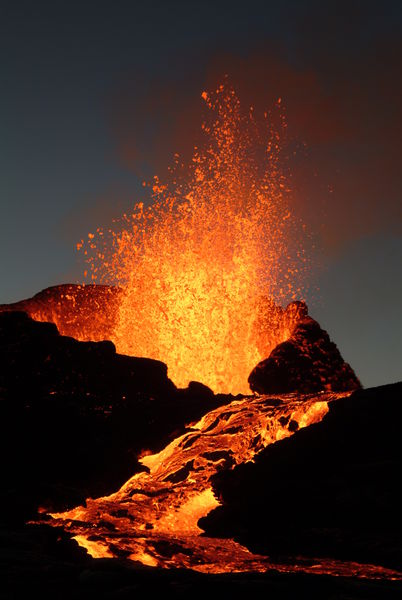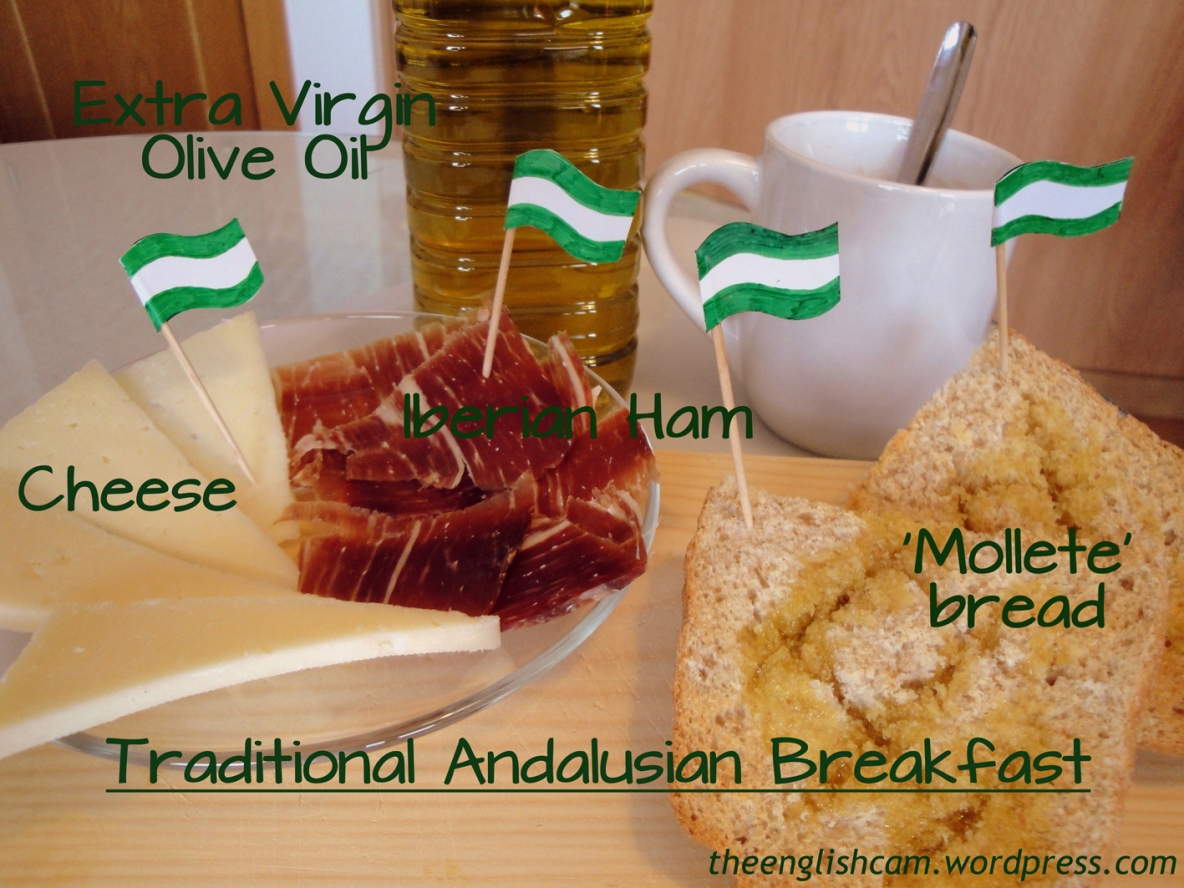https://www.babbel.com/en/magazine/favorite-spanish-words
8 Spanish Words We Should Be Using in English
The following eight Spanish words have been carefully selected from two years on the Iberian peninsula spent studying the language and befriending its people.

When I left university I felt like I was bursting through a set of saloon swing doors, arms loaded with qualifications about to hold up the professional world until they handed over the job of my dreams. I think many graduates feel like this, and this misplaced confidence compounds the disappointment when the professional world shrugs its collective shoulders.
My reaction to this disappointment was to turn my back on the opportunity vacuum and stock up on soft skills. I googled for TEFL courses in Spain, found a charming townlet called Zamora in Castilla y Leon and booked myself a one-way ticket. My Spanish education, albeit informal, started almost as soon as we touched down. I was tasked with navigating my way across Madrid weighed down by my backpack and an oppressive, immovable mid-summer mugginess.
Your relationship with new words is shaped to some extent by the context in which you learn them. Whenever I hear words like estación de trenes(train station), vía (track) and billete (ticket), images of hulking, dusty mazes of misinformation arise in bubbles of residual dread. I consider this part one of my Spanish education, which I would revisit every time I tangled with foreign bureaucracy or indulged in awkward small talk, often ending up feeling inadequate and unpractised. Part two was the polar opposite: education through warm discussion with heated housemates; bar room jibes and living room jest; and the daily, routine exchanges with familiar faces in familiar places.
The following is a list of my favorite words from two years of part two. I sincerely hope you enjoy it, and look forward to your input as to your favorite foreign words.
1. Leche (noun) - Milk

You can’t do much with milk in English. If you spill it, you can cry over it, but that’s about it. One of the first things which struck me on my arrival on the Iberian peninsula was the apparent fascination with milk. Excitement, disbelief, good fortune, bad fortune, admiration… could seemingly all be expressed with the help of milk. Don’t believe me? Consider the following, entirely fabricated exchange:
El jugador de fútbol corría a toda leche cuando uno de sus oponentes le dio una leche en la pierna.
- The soccer player was running at full speed when one of his opponents hit him on his leg.
“Ay la leche”, gritó el jugador al caerse al suelo.
- “Damn it”, cried the player as he fell to the floor.
Un espectador en el estadio comentó a su amigo, “¡Qué mala leche! Ese futbolista es la leche, y si está herido no va a poder jugar en la final, ¡Me cago en la leche!”
- A spectator in the stadium turned to his friend, “That was out of order!He’s the best, and if he’s injured he’s not going to be able to play in the final. Bloody hell!
Su amigo le respondió, “no te pongas de mala leche, tio. No me parece tan serio. Se levantará y seguirá jugando. Lo verás.”
- His friend responded, “don’t get into a bad mood, man. It doesn’t look that serious. He’ll get up and continue playing. You’ll see.”
“Y una leche”, dijó el espectador abatido.
- “No way”, said the spectator, dejected.
So you see, if you memorise the above expressions, you can really milk that leche.
2. Polvo (noun) - Dust

“Dust” is a surprisingly versatile word in English: a footballer may receive a particularly hard tackle and kiss the dust, only to receive an apology from the opposing player once the game is over and the dust has settled. As you grow up, your favorite teddy bear may be left in a corner to gather dust, only to be dusted off once the next generation of bear huggers comes along. Just like in English, you can bite the dust, or morder el polvo, in Spanish, although I wouldn’t recommend it.
Si estás hecho polvo - if you’re made (into) dust - then you’re ground down, exhausted, knackered, whacked, and si estás hecho polvo de la cabezathen you’re stir crazy, nuts or out to lunch. And si haces polvo a alguien, then you make someone (into) dust, meaning you wipe the floor with someone in a competition. So you get the picture: if you’re polvo, then you’ve been pulverised.
But Spanish also uses some idioms that bear a more tenuous connection to the tiny particles that we call dust. For reasons that remain unbeknown to me, polvo also refers to the sexual act. So if you’re prudish (or mojigato; another one of my favorite words which didn’t make it into this list), then avert your gaze now… Look up the phrase echar un polvo and you’ll see the definition realizar el acto sexual, whilst if you say someone has a polvo - alguien tiene un polvo - it means you find them sexually attractive. There we have it; many shades of grey to this dust.
3. Resaca (noun) - Hangover

Resaca is one of those words that many English speakers will already know, like tapas, burrito, cargo, guerrilla, chorizo, and armada, without knowing the original or alternative meanings. Did you know that burritomeans “little donkey”; guerilla means “little war” (making the popular collocation “guerilla warfare” kind of redundant, although guerilla fare sounds like a poorly spelled circus act); and un chorizo can also mean un ladrón (a thief), making it theoretically possible for a chorizo to run away with your chorizo. Going back to the resaca, though, as I have a terrible tendency to do: tener resaca means “to have a hangover” in everyday parlance, but la resaca also refers to the undertow or undercurrent which leaves debris and driftwood scattered across a shore following a storm, and it is this playful imagery that endears me to the word.
4. Botellón (noun) - Public drinking

Botellón is the augmentative form of botella (bottle), so el botellón would literally translate as “the big bottle”. As any visiting Erasmus student will recall (although this may depend upon just how big the bottle was), un botellón is much more than a supersized coke container. Descend upon a public square and you’ll be met by hundreds of buoyant youths riding towards a sugar high on a wave of calimocho, a surprisingly potent mix of wine and coke which betrays all the stereotypes of Spain as a nation of fine-wine-worshippers. Botellón-ing has become such a feature of Spanish youth culture that further terms have been spawned, including botellódromo - an official space for the execution of botellones - and macro-botellón which, as you may have guessed, is even bigger than a big bottle, although it remains unclear at what point a botellón becomes a macro-botellón.
5. Vergüenza (noun) - Embarrassment/Shame

Vergüenza falls somewhere between shame and embarrassment depending upon the sentence into which it falls. ¡Qué vergüenza! would translate as “how embarrassing!”, while if I were to say to you ¡Qué poca vergüenza tienes! I would be castigating you for “having no shame”. But my choice of vergüenza comes not from its breadth of use but rather its involvement in two delightful terms: la de la vergüenza and vergüenza ajena. La de la vergüenza translates as “the one of the shame”, and refers to the final piece of food left on a shared plate that no one dares to pluck for fear of being banned from all future tapas-oriented activities. Vergüenza ajena is the Spanish equivalent of that popular “untranslatable” German word Fremdscham; the feeling of embarrassment or shame that one feels on behalf of the perpetrator of the shameful or embarrassing act.
6. Friolero/Caluroso (adj) - Sensitive to cold/heat

The average Brit has an ingrained need to comment on the weather or enquire thereafter at any given opportunity. This is not at all unusual when you take into account how imminently changeable and whimsical weather is in the British Isles. What’s more surprising is that it’s the Spanish, with their hazy days and sun-filled plights, who have two common words which the English could really do with: friolero and caluroso. The adjectives are used to describe someone who is particularly sensitive to cold (friolero) or heat (caluroso). So next time someone complains of the cold in clement times, tell them to stop being so friolero.
7. Desvelado (adj) - Unable to sleep because you are kept awake by something or someone

“Estuve toda la noche desvelado”, murmured my compañero de piso, or flatmate. He had just appeared from his bedroom, grumpy and confused, and so most probably unsympathetic to my need to know what on earth desvelado meant. It is in these situations that your mind races for connotations, associations, roots, derivatives, generalisable meanings of prefixes; anything that affords a stable enough foundation on which to estimate a response.
“Des-” is a negative prefix, so likely referred to the absence of something, so now I just needed to work out “-velado”. I knew una vela was one of those homonyms which baffle language learners, carrying multiple meanings including “a sail”, “a candle”, and “a vigil”. If estás a dos velas, then you’re broke, penniless, with no money for electricity and just two candles; whilst si pasas la noche en vela, then you’re on vigil all night, or awake. “That’s it!”, I thought. The opposite of en vela - to abandon the state of vigilance - he’s slept so heavily that he’s now struggling to return to the world of the living. “Pues me alegro por ti, David, que bajo este calor no me puedo ni dormir”; I was happy for him, as I could never fall asleep in the sweltering Spanish summer.
He looked at me, yet more confused; “Desvelado, tío; despierto, alerta, incapaz de dormir…” Desvelado, it turned out, was another one of those words that is conspicuous by its absence in English; to be unable to sleep because something is keeping you awake, be it noisy neighbors or your latest preoccupation.
8. Agujetas (noun) - Muscle stiffness

My final word on my list of favorite German words was Ahnungslosigkeit, which made it onto said list due to its euphony. Similarly, the word agujetasis a wonderfully guttural adventure which rockets and plummets between consonants and vowels whilst exercising some of the sounds that anglophones must master to mimic a Spanish accent successfully. Its phonetic merits are not the only thing which endear one to the word, however. Agujetas refer to the muscle ache, soreness or stiffness that one experiences in the days following unusual physical exertion.
The word’s approximation of the diminutive form of the Spanish word for needles (agujas dim. agujitas) immediately inculcates the image of thousands of tiny needles pricking a tired, cantankerous muscle group, although the true root of the word agujetas is not believed to lie here. One intriguing theory proposes the following sequence of semantic leaps; agujetas was used as a term for objects of little value. This then became a colloquial, dysphemistic label for the meagre tips given to postmen on horseback in the 18th century, which in turn became synonymous with the aches an inexperienced rider endures after riding a horse.
Words are just wonderful, aren’t they?














.jpg)




